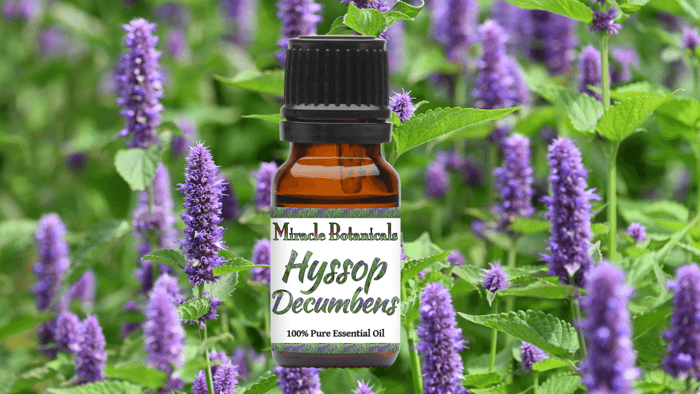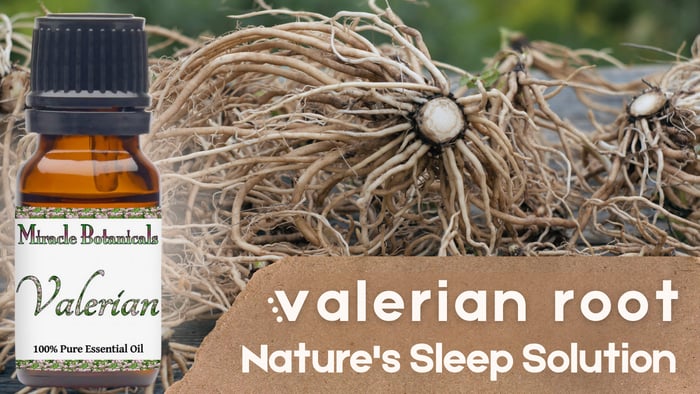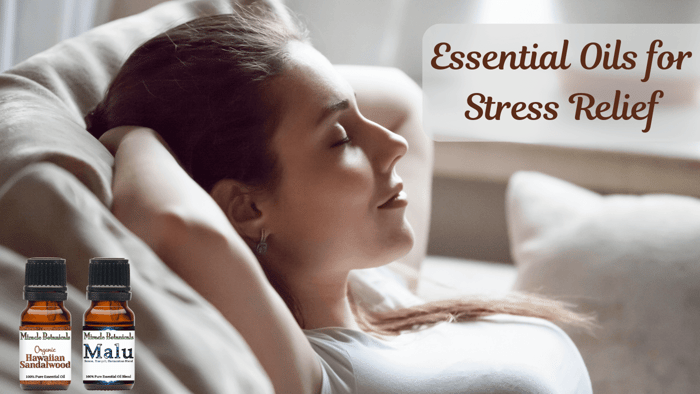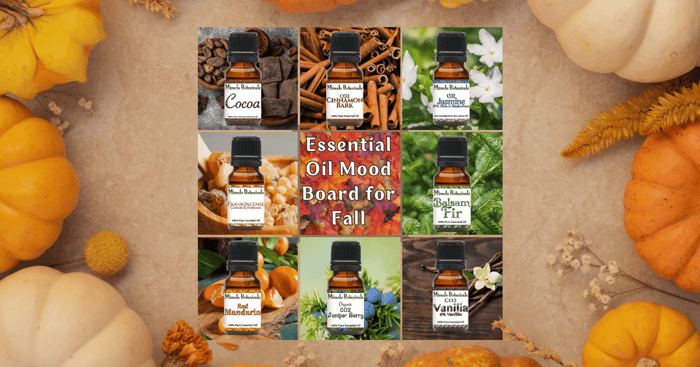Table of Contents
- Introduction to linalool and its significance
- Understanding linalool terpene and its effects
- Isolated Linalool Compared to Complex Linalool
- Exploring the various benefits of linalool
- The role of linalool in hyssop decumbens
- How linalool influences the human body and mind
- Linalool in aromatherapy and its calming properties
- Using hyssop decumbens for its linalool content
- Why Hyssop Decumbens?
- Incorporating linalool into your daily routine
- Potential side effects and precautions of linalool usage
- Conclusion: Embracing the power of linalool and hyssop decumbens
Introduction to linalool and its significance
Linalool, a naturally occurring terpene alcohol, has captivated the interest of researchers, health enthusiasts, and aromatherapy practitioners alike. Linalool benefits are numerous. This remarkable compound, found in a variety of plants, has been the subject of extensive study due to its unique properties and potential benefits.
In this comprehensive article, we will embark on a journey to uncover the wonders of linalool, with a particular focus on its presence in the remarkable hyssop decumbens plant, also known for producing hyssop essential oil.
As we delve into the world of linalool, we will explore its intricate nature, its apparent effects on the human body and mind, and the various ways it can be incorporated into our daily lives. From its calming properties in aromatherapy to its potential therapeutic applications for conditions like stroke, Alzheimer's disease, and oxidative stress, linalool promises to unlock a realm of possibilities for enhancing our overall well-being.
So, join me as we unravel the secrets of this remarkable terpene and discover how hyssop decumbens, a plant rich in linalool, can become a valuable ally in our pursuit of a healthier, more balanced lifestyle. We'll explore the benefits of hyssop oil, how to use hyssop oil, its effects on the central nervous system, and much more.
Understanding linalool terpene and its effects
Linalool is a naturally occurring terpene alcohol that belongs to the class of monoterpenes. It is widely found in various plants, including lavender, coriander, and the focus of our discussion, hyssop decumbens. This remarkable compound has garnered significant attention due to its unique properties and potential benefits.
One of the most intriguing aspects of linalool is its ability to interact with the human body and mind in various ways. Research has shown that linalool has anti-inflammatory, antioxidant, and antimicrobial properties, making it a potential ally in combating a range of health issues. It may help protect the hippocampus and mitigate the effects of ischemia.
Furthermore, linalool is known for its calming and sedative effects, which have made it a valuable component in aromatherapy and stress management practices. Studies have suggested that linalool may help alleviate anxiety and promote relaxation by interacting with specific receptors in the brain, contributing to hyssop essential oil emotional benefits. Hyssop essential oil uses include managing psychiatric illnesses, sleep disorders, and supporting mood regulation.
Hyssop Decumbens Essential Oil (Hyssopus Decumbens)
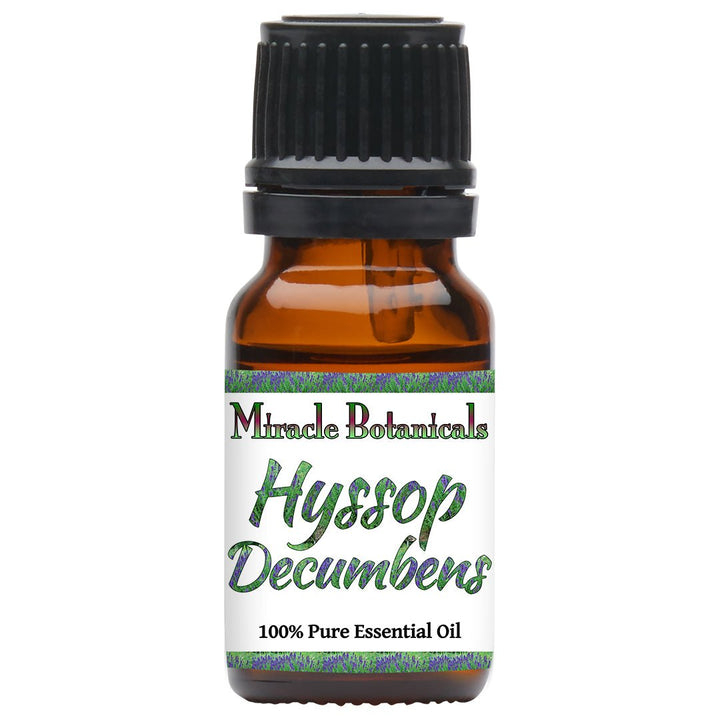
$23.00
Botanical Name: Hyssopus Decumbens Plant Part: Whole Plant Method of Extraction: Steam Distilled Country of Origin: Spain Aroma Profile: Camphorous, Herbaceous, Sweet, Rich, Spicy, Sharp, Fresh Perfumery Note: Middle Main Chemical Components: Linalool (51.8%), 1,8-Cineole (16.95%), Limonene (7.22%) … read more
Isolated Linalool Compared to Complex Linalool
Isolated linalool and the linalool found in Hyssop decumbens essential oil differ significantly in their composition and effects. Isolated linalool is a single compound that has been extracted or synthesized, consisting solely of the linalool molecule. It acts independently, with predictable and consistent effects, making it ideal for standardized industrial or research applications.
In contrast, linalool in Hyssop decumbens essential oil exists as part of a complex mixture of various compounds, including other terpenes, alcohols, esters, and ketones. This natural occurrence allows for potential synergistic interactions with other components in the oil, which can lead to different or enhanced biological activities compared to isolated linalool.
The context of linalool also impacts its aroma profile and applications. Isolated linalool has a distinct floral, lavender-like scent with woody and spicy notes, which remains consistent. It's often used in perfumery, cosmetics, and as a food additive. On the other hand, linalool in Hyssop decumbens essential oil contributes to a more complex aroma profile, modulated by other aromatic compounds present in the oil. This creates a unique olfactory experience valued in aromatherapy, natural perfumery, and holistic health practices.
Additionally, while isolated linalool can be easily standardized, the concentration and overall composition of linalool in the essential oil may vary depending on factors like growing conditions, harvest time, and extraction methods, leading to potential batch-to-batch variations.
Exploring the various benefits of linalool
As we delve deeper into the world of linalool, we uncover a multitude of potential benefits that this remarkable compound may offer. From its anti-inflammatory properties to its potential neuroprotective effects, linalool has captured the attention of researchers and health enthusiasts alike. Let's explore some key linalool benefits and what linalool does:
- Anti-inflammatory properties: Linalool has been found to possess anti-inflammatory properties, which may aid in reducing inflammation and alleviating associated symptoms. This characteristic could make it a valuable ally in managing conditions like arthritis, skin irritations, and other inflammatory disorders, showcasing hyssop benefits for skin.
- Antimicrobial and antifungal effects: Studies have demonstrated that linalool exhibits antimicrobial and antifungal properties, suggesting its potential use in combating various infections and promoting overall health.
- Neuroprotective potential: Exciting research has shed light on linalool's potential neuroprotective effects, indicating its ability to protect brain cells from damage and potentially mitigate the risk of neurodegenerative disorders like Alzheimer's disease and Parkinson's disease. It may support cognitive function and help manage neurological disorders and neuropathic pain.
- Antioxidant properties: Linalool has been found to possess antioxidant properties, which can help neutralize harmful free radicals and protect cells from oxidative stress, a contributing factor to various chronic diseases.
- Anxiety and stress relief: One of the most well-known benefits of linalool is its ability to promote relaxation and alleviate anxiety and stress. This property has made it a popular ingredient in aromatherapy and stress management practices, highlighting the hyssop essential oil benefits for emotional well-being.
As you can see, the potential benefits of linalool are vast and diverse, making it a compound worthy of further exploration and research. By understanding what is linalool and various linalool uses, we can harness its potential for brain health, pain relief, and overall wellness.
The role of linalool in hyssop decumbens
While linalool is found in various plants, our focus today is on the remarkable hyssop decumbens, a plant rich in this valuable compound. Hyssop decumbens, also known as hyssop hedge-nettle or hyssop hedge-mustard, is a herbaceous perennial plant native to the Mediterranean region. The hyssop definition encompasses its rich history and therapeutic potential.
This unassuming plant has long been valued for its medicinal properties, and it is believed that its linalool content plays a significant role in its therapeutic potential. Hyssop decumbens has been traditionally used to treat a variety of ailments, including respiratory issues, digestive problems, and even wounds. The benefits of hyssop oil extend to hair care, with hyssop benefits hair health and growth.
By understanding the role of linalool in hyssop decumbens, we can better appreciate the plant's potential benefits and explore ways to harness its power for our overall well-being. Whether you're interested in how to make hyssop oil or finding hyssop oil near me, understanding the significance of linalool is key.
How linalool influences the human body and mind
As we delve deeper into the world of linalool, it becomes evident that this remarkable compound has the ability to influence both our physical and mental states. Through its interactions with various receptors and pathways in the body, linalool can exert a multitude of effects, ranging from anti-inflammatory and antimicrobial properties to its potential neuroprotective and anxiolytic effects. Let's explore the mechanisms behind linalool terpene effects:
- Anti-inflammatory mechanisms: Linalool has been found to modulate the production of inflammatory mediators, such as cytokines and prostaglandins, thereby reducing inflammation and associated symptoms. This contributes to the value of linalool and Hyssop Decumbens essential oil in skin care.
- Antimicrobial and antifungal actions: The antimicrobial and antifungal properties of linalool are attributed to its ability to disrupt the cell membranes of microorganisms, inhibiting their growth and proliferation.
- Neuroprotective potential: Linalool has been shown to interact with various receptors and pathways in the brain, potentially protecting neurons from damage and mitigating the risk of neurodegenerative disorders like Alzheimer's disease. It may help preserve the hippocampus and reduce the impact of ischemia and stroke.
- Anxiolytic and sedative effects: One of the most well-known effects of linalool is its ability to promote relaxation and alleviate anxiety and stress. This is achieved through its interactions with the gamma-aminobutyric acid (GABA) system, which plays a crucial role in regulating mood and anxiety levels. Linalool may influence neurotransmitters and support the serotonergic pathway, contributing to its antidepressant activity.
- Antioxidant mechanisms: Linalool's antioxidant properties are attributed to its ability to scavenge harmful free radicals and prevent oxidative stress, which can contribute to the development of various chronic diseases.
By understanding how linalool influences the human body and mind, we can better appreciate its potential therapeutic applications and explore ways to harness its power for our overall well-being. Whether used in essential oils, medicinal cannabis, or other formulations, linalool's apparent effects on the central nervous system and beyond are truly remarkable.
Hyssop Decumbens Essential Oil (Hyssopus Decumbens)

$23.00
Botanical Name: Hyssopus Decumbens Plant Part: Whole Plant Method of Extraction: Steam Distilled Country of Origin: Spain Aroma Profile: Camphorous, Herbaceous, Sweet, Rich, Spicy, Sharp, Fresh Perfumery Note: Middle Main Chemical Components: Linalool (51.8%), 1,8-Cineole (16.95%), Limonene (7.22%) … read more
Linalool in aromatherapy and its calming properties
One of the most well-known applications of linalool is in the realm of aromatherapy, where its calming and sedative properties have been widely recognized and utilized. The pleasant, floral aroma of linalool has made it a popular choice among essential oils enthusiasts and those seeking natural ways to promote relaxation and alleviate stress.
In aromatherapy, essential oils are often used for their linalool content . The inhalation of linalool-rich essential oils, such as Sweet Thyme, Sweet Basil, or Ho Wood, has been found to induce a sense of calmness and relaxation, making it a valuable tool for managing anxiety, insomnia, and stress-related conditions. This highlights the hyssop essential oil emotional benefits and the significance of hyssop essential oil uses in promoting mental well-being.
Moreover, linalool's calming properties extend beyond its aroma. Topical applications of linalool-containing products have been shown to have a soothing effect on the skin, potentially alleviating conditions like eczema, dermatitis, and other skin irritations. Hyssop benefits for skin are attributed, in part, to the presence of linalool.
While linalool is an important component, there are several other factors and compounds that contribute to Hyssop Decumbens essential oil for skin care. Let me elaborate on some of these:
- Antioxidant properties: Hyssop decumbens oil contains other compounds that act as antioxidants, helping to protect the skin from free radical damage and potentially slowing down the aging process.
- Anti-inflammatory effects: The oil contains other components that can help reduce inflammation in the skin, which can be beneficial for conditions like acne or redness.
- Antimicrobial activity: Some compounds in hyssop decumbens oil have antimicrobial properties, which can help in reducing skin infections and maintaining a healthy skin microbiome.
- Astringent qualities: The oil may have mild astringent properties, which can help tighten pores and tone the skin.
- Cicatrisant properties: Hyssop decumbens oil might aid in the healing of wounds and scars, promoting skin regeneration.
- Emollient effects: The oil can help moisturize and soften the skin, improving its texture and appearance.
- Circulatory benefits: It may help improve blood circulation when applied topically, which can contribute to a healthy, glowing complexion.
- Balancing effect: Hyssop decumbens oil is thought to help balance oil production in the skin, making it potentially beneficial for both dry and oily skin types.
- Aromatherapeutic properties: The scent of hyssop decumbens oil can have calming effects, which may indirectly benefit the skin by reducing stress-related skin issues.
- Synergistic effects: The combination of various compounds in the oil, including but not limited to linalool, can work synergistically to provide a range of skincare benefits.
By incorporating Hyssop Decumbens essential oil into your aromatherapy routine, you can unlock a world of tranquility and serenity, allowing you to find balance and peace amidst the hustle and bustle of daily life. Whether you're exploring how to use hyssop oil or seeking hyssop oil for hair benefits, the calming properties of linalool are sure to enhance your well-being.
Using hyssop decumbens for its linalool content
While linalool can be found in various plants, hyssop decumbens stands out as a rich source of this remarkable compound, which is part of a symphony of other compounds.
One of the most convenient ways to utilize hyssop decumbens is through the use of its essential oil. The essential oil of hyssop decumbens is renowned for its high linalool content, making it a potent and concentrated source of this valuable compound.
Here are some ways you can incorporate hyssop decumbens essential oil into your daily routine:
- Aromatherapy: Add a few drops of hyssop decumbens essential oil to a diffuser or inhale its aroma directly from the bottle to promote relaxation and calmness.
- Topical applications: Dilute about 5-30 drops of the essential oil with an ounce of carrier oil and apply it topically to soothe skin irritations, reduce inflammation, or promote a sense of tranquility.
- Household cleaning: Utilize the antimicrobial properties of hyssop decumbens essential oil by adding a few drops to your household cleaning products for a natural and refreshing cleaning solution.
- Herbal teas: Steep dried hyssop decumbens leaves in hot water to create a soothing herbal tea, which can be enjoyed for its potential therapeutic benefits and calming properties.
Unlock the power of linalool and experience the benefits of hyssop oil by purchasing our premium hyssop decumbens essential oil. Sourced from the finest hyssop decumbens plants, our essential oil is rich in linalool and offers a natural way to promote relaxation, soothe skin irritations, and support overall well-being.
Why Hyssop Decumbens?
While Hyssopus decumbens does not contain the same toxic ketones (pinocamphone and isopinocamphone) found in common hyssop (Hyssopus officinalis), it's important to understand the nuances of its chemical composition.
This distinction is crucial for herbalists and those interested in plant-based remedies. The absence of these particular ketones in Hyssopus decumbens contributes to its generally safer profile compared to its more common cousin.
Pinocamphone and isopinocamphone, present in common hyssop, are known for their potential neurotoxic effects when consumed in large quantities. Their absence in Hyssopus decumbens means that this species may be less likely to cause adverse reactions typically associated with these compounds, such as seizures or convulsions.
However, it's worth noting that Hyssopus decumbens still contains other ketones, albeit in different proportions and types. This underscores the importance of understanding the specific chemical profiles of different plant species, even within the same genus, as they can have significantly different effects on human health.
Hyssop Decumbens Essential Oil (Hyssopus Decumbens)

$23.00
Botanical Name: Hyssopus Decumbens Plant Part: Whole Plant Method of Extraction: Steam Distilled Country of Origin: Spain Aroma Profile: Camphorous, Herbaceous, Sweet, Rich, Spicy, Sharp, Fresh Perfumery Note: Middle Main Chemical Components: Linalool (51.8%), 1,8-Cineole (16.95%), Limonene (7.22%) … read more
Incorporating linalool into your daily routine
While hyssop decumbens offers a convenient and concentrated source of linalool, there are numerous other ways to incorporate this remarkable compound into your daily routine. By embracing a linalool-rich lifestyle, you can potentially enhance your overall well-being and reap the benefits of this versatile terpene.
Here are some simple ways to incorporate linalool into your daily routine:
- Aromatherapy: Invest in a high-quality essential oil diffuser and use linalool-rich essential oils, such as lavender, bergamot, or coriander, to create a calming and relaxing atmosphere in your home or workspace.
- Herbal teas: Explore the world of herbal teas by incorporating linalool-rich herbs like lemongrass, basil, or coriander into your tea blends. Sipping on these aromatic teas can provide a soothing and rejuvenating experience.
- Culinary adventures: Incorporate linalool-rich herbs and spices, such as coriander, basil, and thyme, into your cooking. Not only will they add delightful flavors to your dishes, but they may also offer potential health benefits.
- Mindful moments: Take a few moments each day to mindfully inhale the aroma of linalool-rich plants or essential oils. This simple practice can help promote relaxation and reduce stress levels.
Remember, moderation is key when incorporating new substances into your routine.
Potential side effects and precautions of linalool usage
While linalool is generally considered safe for most individuals when used in moderation, it is important to be aware of potential side effects and precautions to ensure its safe and effective use.
- Skin sensitivity: Some individuals may experience skin irritation or allergic reactions when exposed to linalool, especially through topical applications. It is advisable to perform a patch test before using linalool-containing products on larger areas of the skin.
- Respiratory sensitivity: In rare cases, inhaling linalool-rich essential oils or fragrances may trigger respiratory irritation or asthma-like symptoms in individuals with pre-existing respiratory conditions or sensitivities.
- Drug interactions: Linalool may interact with certain medications, potentially altering their effectiveness or increasing the risk of side effects. It is crucial to consult with a healthcare professional before using linalool if you are taking any prescription or over-the-counter medications.
- Pregnancy and breastfeeding: While linalool is generally considered safe for use during pregnancy and breastfeeding when used in moderation, it is advisable to consult with a healthcare professional before using linalool-containing products during these periods.
- Children and infants: Exercise caution when using linalool-containing products around children and infants, as their developing bodies may be more sensitive to the potential effects of this compound. See my post about using essential oils for babies and children.
Conclusion: Embracing the power of linalool and hyssop decumbens
As we conclude our journey through the world of linalool and hyssop decumbens, it becomes evident that this remarkable compound and the plant that harbors it hold immense potential for enhancing our overall well-being.
From its calming and relaxing properties to its potential therapeutic applications, linalool has captured the attention of researchers, health enthusiasts, and aromatherapy practitioners alike. By embracing the potential of linalool and incorporating it into our daily routines, we open ourselves to a world of possibilities for promoting relaxation, reducing inflammation, and mitigating the risk of various health conditions like Alzheimer's disease, stroke,


